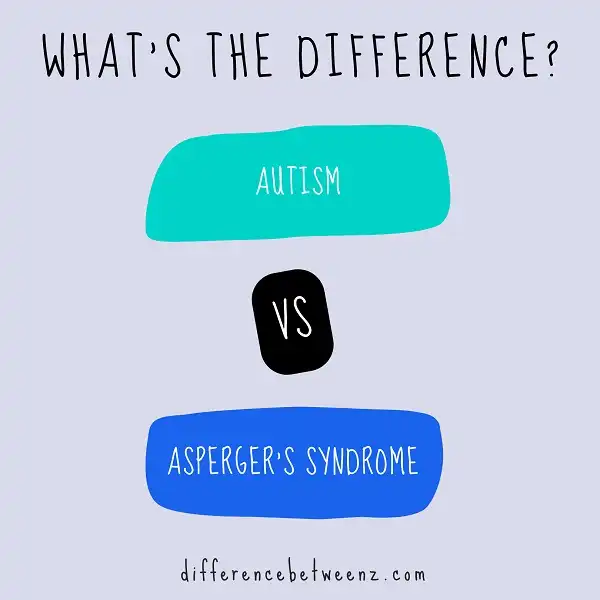Autism vs. Asperger’s Syndrome
Difference between Autism and Asperger’s Syndrome: – There are certain conditions that generate a lot of confusion among those who have little information on the subject or are prejudiced. In some cases, people who have these conditions may be discriminated against or misunderstood by the rest; thus causing their problems to become even greater.
Difference between Autism and Asperger’s Syndrome
Here’s the difference between two of the conditions most people confuse: Asperger’s syndrome and autism. If you have doubts about it, continue reading.
Autism
It is a spectrum of disorders that are diagnosed based on the behavior of individuals in two spheres: communication and social interaction and repetitive or restrictive patterns of behavior. In this sense, it is important to mention that although it is possible that autistic people share certain characteristics; the disorder manifests itself in many different ways that is why the word “spectrum” is used to describe the condition.
Autism is five times more common in boys than in girls and has to do with a wide variety of factors: neurological, cognitive and psychological.
Asperger Syndrome
On the other hand, Asperger syndrome was considered a subtype of “high functioning” autism characterized by the absence of the classic symptoms of classic autism (late development or problems with language acquisition); however, from the DSM-5 (manual of psychologists and psychiatrists) autism and Asperger’s syndrome are classified differently.
The only clinical difference between Autism and Asperger’s Syndrome is that in the first case the acquisition of language is not postponed and there are no significant problems in cognitive development.
People with Asperger’s regularly experience difficulties in the area of social interaction. It is common to feel embarrassed or anxious when they are surrounded by people, lack empathy (this aspect is under discussion), feel concern or interest only for a particular subject, among other things. However, in some cases the cognitive abilities of people with Asperger’s become even higher compared to those of “normal” people.
Other typical characteristics of the individuals diagnosed with Asperger are: interpret the language literally; they can have difficulty understanding the sarcasm, different languages or the figurative language. Finally, there is no “cure” for autism or Asperger’s syndrome; but often the parents follow some treatments or routines with the children who present these conditions so that both can develop better.


